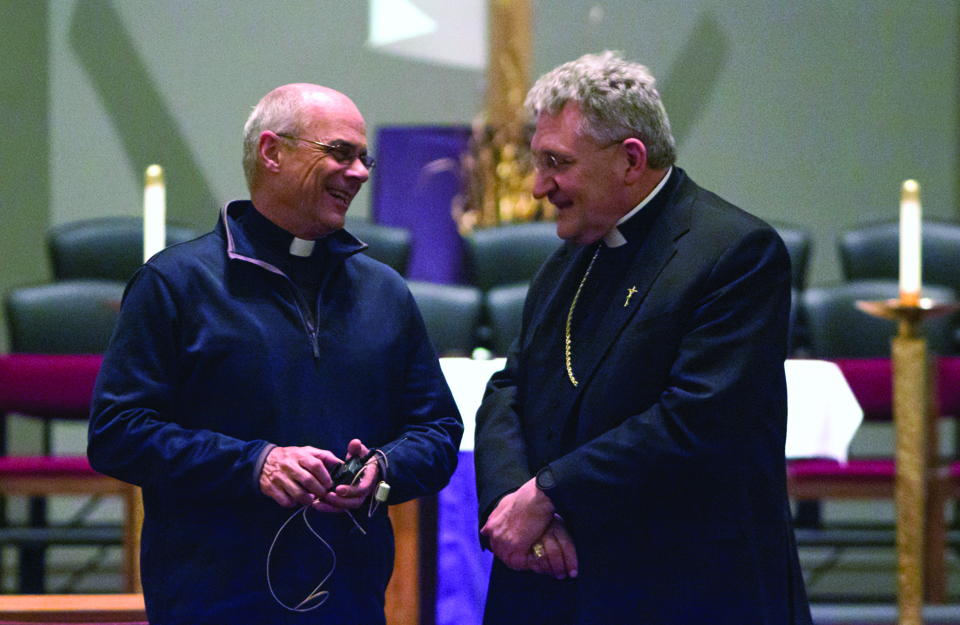Raymond Arke | Editor-in-chief
08/30/18
Regarded as a maverick and one of the best-known and most powerful U.S. Senators of his generation, John S. McCain III (R-Arizona), age 81, passed away on Aug. 25. McCain was a two-time presidential candidate, losing the 2000 Republican primary to George W. Bush (R-TX) and losing the 2008 Presidential Election to Democrat Barack Obama (D-IL).
Duquesne’s President, Ken Gormley, recalled McCain as a stand-out in Gormley’s years of scholarship on American government.
“I have always greatly admired Senator John McCain’s deep commitment to public service. In my many years of studying and writing about American government, McCain’s ethical compass stands out as a rare treasure in our political system,” Gormley said.
He also cited McCain’s dedication to civil discourse, an issue Gormley focuses on at Duquesne.
“His willingness to reach across the aisle and respectfully engage with those who did not necessarily share his views will be an enduring model of civil discourse at its best. His presence as a pillar of public service will be deeply missed,” Gormley said.
McCain was born on Aug. 29, 1936 to a military family living in the then-American owned Panama Canal Zone. His grandfather and father were both influential full admirals in the U.S. Navy; his grandfather was a Pacific theater commander in World War II and his father was the commander for all armed forces in the Pacific during the Vietnam War.
For college, McCain attended the U.S. Naval Academy, where he often rebelled and nearly got expelled, according to the Washington Post. McCain graduated in 1958.
In 1967, McCain was sent on into combat in Vietnam and was stationed on a supercarrier in the Tonkin Gulf, flying bomber missions. That year he survived an accidental explosion on the carrier which killed 130 other crewmen. He then volunteered for duty on another ship which was undermanned.
On Oct. 26 1967, McCain lew his 23rd mission and his first attack on the North Vietnamese capital of Hanoi. While on the mission, McCain’s plane was shot down, and he was captured by North Vietnamese forces. He was taken to the infamous “Hanoi Hilton” prison where he was subject to five-and-a-half years of physical and mental torture. According to the Washington Post, he was kept mostly in solitary confinement and suffered beatings which broke his arm and ribs. McCain was offered and denied early release from prison, refusing to leave before those held longer were freed.
McCain was released from the prisoner-of-war camp in 1973, after the war ended. He retired from the Navy in 1981 and moved to Arizona, where he ran for and won a U.S. House of Representatives seat. In 1986, he won election to the U.S. Senate.
While he often voted the Republican party line, McCain early on got a reputation as an aisle-crosser and a “maverick”, a term he would use in his presidential campaigns. He would often join Democrats in pushing for immigration reform and steadfastly opposed “enhanced interrogation techniques,” considered torture by some, because of his experiences as a North Vietnamese prisoner.
One of his most notable achievements was co-authoring the 2002 Bipartisan Campaign Reform Act with liberal, Democrat Russ Feingold (D-WI). A massive overhaul of campaign finance law added new restrictions, but was overturned by the Supreme Court in the landmark Citizen’s United v. Federal Election Commission decision which opened the door to Super Political Action Committees and “dark money.”
In 2017, McCain dramatically cast the deciding “no” vote against the Republican plan to replace the Affordable Care Act (ACA). McCain joined Sens. Susan Collins (R-ME) and Lisa Murkowski (R-AK) as the only Republicans to join Democrats in preserving the ACA.
McCain’s tendency to cross party lines led to attempted recruitment by Democrats in 2001 to switch parties and in 2004, Sen. John Kerry (D-MA), the Democratic presidential nominee, considered him for the vice presidential slot, according to the Washington Post.
He was not free from scandal during his lengthy Senate career. McCain was named in the “Keating Five” scandal, where he and four Democrats were accused of attempting to prevent federal regulators from investigating a high-profile Arizona donor, Charles Keating Jr. The Senate Ethics Committee determined McCain showed “poor judgement,” but issued no harsher punishment, according to the Washington Post.
In 2000, McCain ran in the Republican primary against George W. Bush, son of former President George H.W. Bush and the establishment’s favorite to win. Crossing New Hampshire on a bus titled “The Straight Talk Express,” McCain pulled off a massive upset of Bush in the first primary. However, his campaign ran into trouble in South Carolina, where the Bush campaign spread false rumors that McCain fathered an illegitimate black child and that he was brainwashed as a prisoner-of-war. That, combined with McCain’s criticism of South Carolina’s flying of the Confederate flag, lead to his defeat in the primary and his eventual withdrawal from the race.
McCain had more success in 2008, winning the Republican nomination to face Barack Obama. While the race was initially tight, McCain’s pick of untested Sarah Palin (R-AK) as his vice presidential nominee failed to overcome the enthusiasm for Obama and his support of the Iraq War contributed to his electoral loss.
Always an advocate of a hawkish foreign policy, especially towards Russia and Putin, McCain was a leading President Obama critic. However, McCain clashed even more with then-candidate and current President Donald Trump.
In 2015, McCain stated that candidate Trump had “fired up the crazies,” according to The Washington Post. Trump responded by mocking McCain’s service record at a rally, saying “I like people who weren’t captured,” according to numerous media reports.
McCain will lie in state in the Rotunda of the U.S. Capitol Building on Aug. 30. A memorial service will be held on Sept. 1 in the National Cathedral in Washington D.C. Former Presidents Obama and George W. Bush will deliver eulogies.




